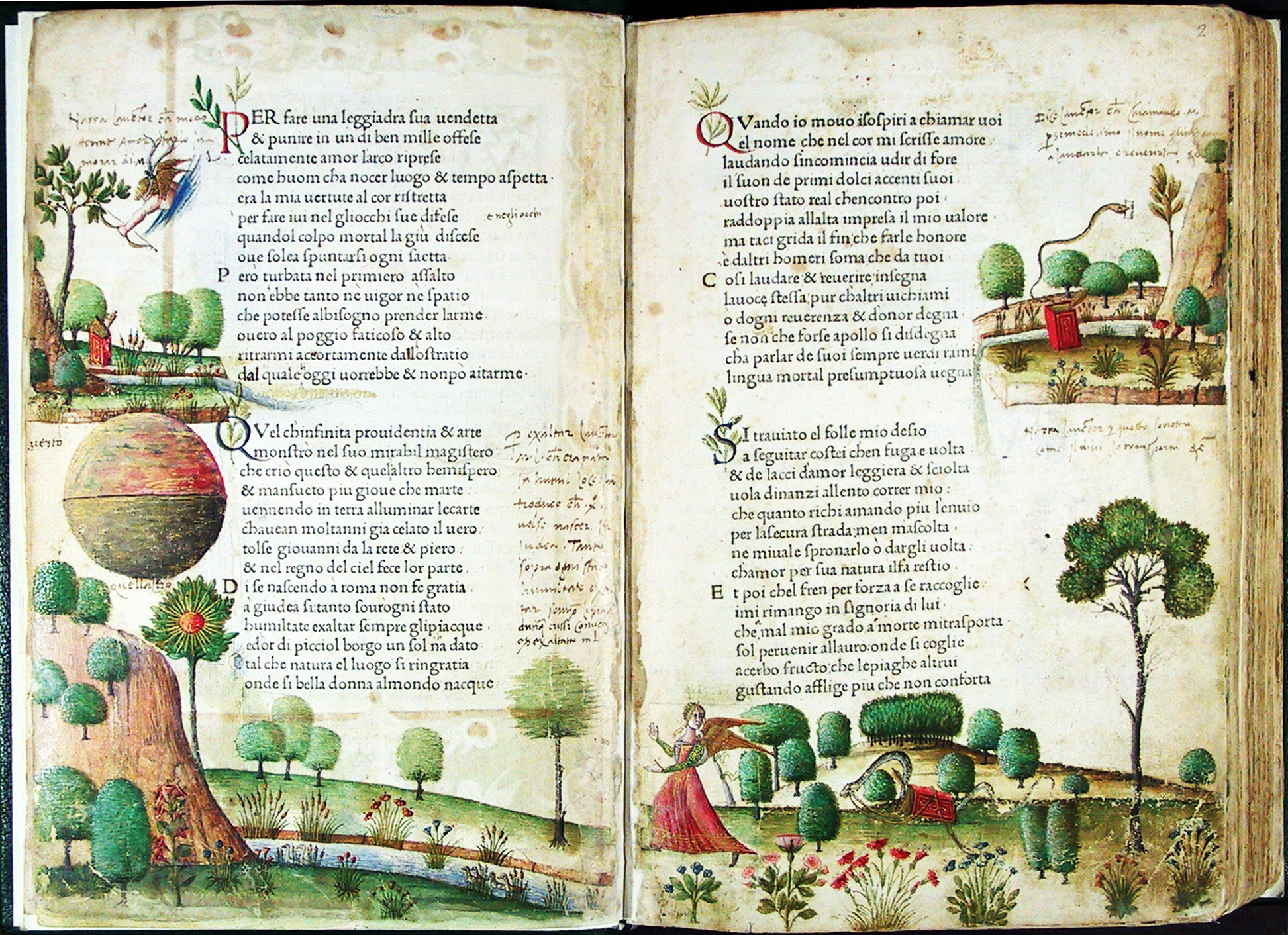
Francesco Petrarca is considered the father of the Italian language and of Humanism. In the Italian literature scenario, more than everything he represents the ideals of the modern man, who wanted a clean break with the medieval past, recovering the centrality of man in the service of an absolutely innovative poetic, made of stylistic perfection that will pave the way to the golden age of the Italian Renaissance.
Petrarch was born in Arezzo on July 20, 1304, son of Ser Petracco, a Florentine notary and political exile, a friend of Dante and Eletta Canigiani. Because of his father's exile, the young Francesco spent his childhood in various places in Tuscany, first in Arezzo, then in Incisa and Pisa, where his father moved for political and economic reasons.
In 1316, Francesco was sent by his family to study law in Montpellier, France. In addition to the disinterest and discomfort towards the case-law, this period of his life in Montpellier sees the first of several deaths that Petrarca will have to face in the course of his life: the death, at just 38 years, of his mother Eletta.
Francesco's father, shortly after the death of his wife, decided to change the venue for his children's studies, sending them in 1320, in the far more prestigious Bologna. Here the poet, increasingly impatient against studying law, soon binds with the Bolognese literary circles, becoming a student and friend of Latin scholars Giovanni del Virgilio and Bartolino Benincasa, thus cultivating the elements of knowledge. In 1326 Ser Petracco dies, allowing Petrarca to finally leave the Faculty of Law in Bologna. To devote himself full time to classical studies, he had to find a source of income that would allow lucrative earnings: he finds it as a member of the crew of Giacomo Colonna, archbishop of Lombez; and then of Giacomo's brother, Bishop Giovanni Colonna, from 1330.
Shortly after he joined the crew of Bishop Giovanni, Petrarca takes the holy orders, becoming canon, to get the benefits related to the ecclesiastical entity of which he was invested. Despite its religious role, in these years Petrarca has several children with unknown women.
According to what he writes in "Secretum", Petrarca for the first time meets, in the church of Santa Clare in Avignon on April 6 1327 (Good Friday in that year), Laura, the woman that will be the love of his life and who will be immortally depicted in the "Canzoniere". In the 40s of the '300 the poet, taking advantage of his network of knowledge and protectors, thinks of getting official recognition for his innovative literary activities, sponsoring his poetic coronation. Petrarca, who wished to be crowned in the ancient Roman Empire, accepts the offer of the Senate of Rome. After being judged for three days in Naples by King Robert of Anjou, who establishes the exceptional culture of the poet, his the coronation will be held at the Capitol in Rome.
His most famous work will remain the "Canzoniere", the history through poetry of Petrarca's inner life. It is a collection of 366 poems, one for each day of the year, plus one introductory, a greatest testimony of Petrarca's poetry focused on the man. In particular, the dominant theme is the "inner conflict" that the poet feels between the attraction to earthly pleasures and the love for Laura, and the spiritual tension towards God.
Struck by a heart attack, Francesco Petrarch dies in Arquà in the night between 18 and July 19 of 1374. Recognized during his lifetime as an absolute master and a guide for all those interested in studying humanities topics, Petrarca left an immense literary and philological legacy, which affected the culture of the following centuries and was the actual foundation of the extraordinary humanistic era and of the Italian Renaissance.



